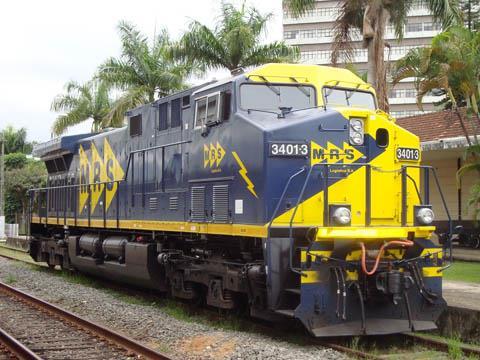
BRAZIL: Common standards should be adopted to ensure interoperability across the 10 000 km of new freight railway corridors to be developed by the federal government over the next 15 years, according to national railway industry association Abifer.
Speaking on November 6 at the first Metroferroviário conference, being held alongside the Business on Rails exhibition in São Paulo, Abifer President Vincente Abate and Invensys Rail Dimetronic CEO Claudio Zemella pointed to the legacy of incompatible gauges and technical standards which continued to affect the efficiency of the former state railway network.
While welcoming the huge investments being made by the private concessionaires which run these lines, Abate accepted that it would be almost impossible to eliminate these legacy problems.
However, Zemella said adopting common standards for the government's R$91bn investment programme would provide a solid basis to enhance interoperability in the future. He pointed to the government's establishment of an 'integrated logistics plan' to address transport development on a holistic level.
Within the last two or three months, Abifer has established a working group to develop appropriate standards, including representatives from industry, government, operators and academics, Zemello reported. This was looking at world best practice to identify what could be most appropriate for the Brazilian market.
He believed that interoperability was the key to ensuring 'integrated, secure and flexible' operation of the new railways, whoever may win the concessions to run them.
To this end, the industry group is recommending that the government should adopt ERTMS for all new lines, with a view achieving critical mass which would justify rolling it out as a replacement for legacy train control systems as they become life-expired in the future. The system would cover not just train control, but also the wider traffic management functions that offered benefits for efficient business management.
Asked whether Brazil needed a local variant, perhaps using Tetra radio instead of GSM-R, industry insiders insisted that the country should not follow the Chinese model in insisting on local variations.
Adopting the global standards in their entirety would avoid any problems of maintaining the standards during future development, as Brazil could then sign a MoU with the European Railway Agency as the existing System Authority for ERTMS.

















